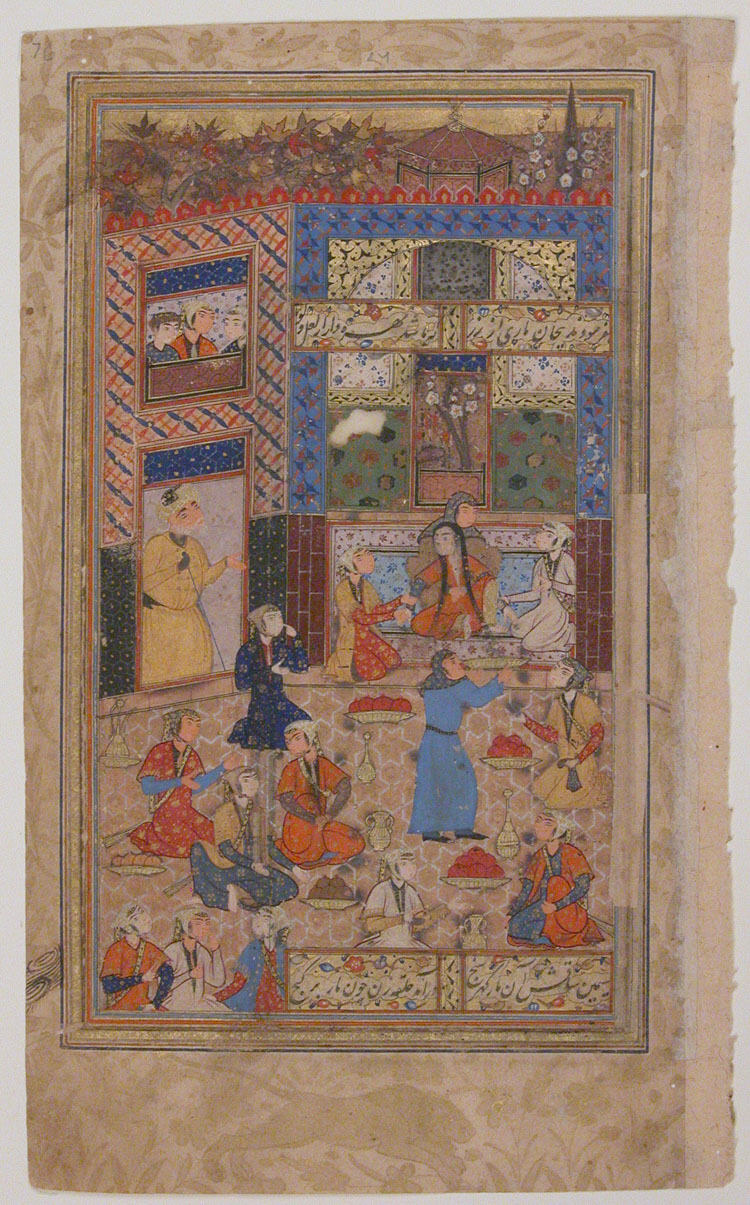FWP:
SETS == PETRIFIED PHRASES
DREAMS: {3,3}
For background see S. R. Faruqi's choices. This verse is NOT one of his choices; I thought it was interesting and have added it myself. For more on Ghalib's unpublished verses, see the discussion in {4,8x}.
On the 'petrified phrase' takalluf bar-t̤araf , see {65,1}. Here, it will initially appear as a conventional 'claim of candor' phrase, but it can also be read, retrospectively, as describing how the addressee ought to acquire the taste of Zulaikha-- by 'putting aside formality'.
On the paradoxical-seeming 'embrace of leave-taking', see {57,6}.
For discussion of the story of Zulaikha's three dreams about Joseph, see {194,5}.
'Joseph-land'?! This bizarre neologism not only doesn't add to the meaning of the verse, but actually detracts from it (since an 'embrace of leave-taking' is much more appropriate for a person than for a country). This seems to be a clear case of padding. Zamin's criticism is obviously correct: the padding is dictated by the requirements of the rhyme.
This verse reminds me of the famous anecdote attributed to Rumi's teacher Shams-e Tabrizi about how one must look at Laila with the eyes of Majnun. Here, we're enjoined to cultivate the żauq (see the definition above) of Zulaikha, because otherwise one will be left with nothing but a confused dream of loss. And Zulaikha's żauq requires a stubborn, even foolhardy courage and commitment in the waking world: in order to find Joseph, she had to insist on marrying an unsuitable eunuch.
The wordplay of 'collecting' and 'scattering' works well here. The idea that one must jamʿa karnā one's żauq evokes the common expression ḳhāt̤ir jamʿa rakh , meaning something like 'Pull yourself together!' (see the definitions above, and {202,3}). By contrast, pareshāñ evokes a nightmare of disorder, confusion, and loss.

Asi:
Leave aside formality, and obtain a single dream like the dream of Zulaikha. Otherwise, the truth is that a confused dream will become the 'embrace of leave-taking' of Joseph. He has construed confusion as 'openness' because the 'embrace of leave-taking' is usually open. The gist is, 'obtain composure of heart, otherwise there's no hope of finding the desired Joseph'.
== Asi, p. 233